
Pagan rituals are sacred gatherings that connect participants with the divine, nature, and the energies that surround us all. Whether you’re new to Paganism or a seasoned practitioner, understanding the proper etiquette for these ceremonies is crucial. These rituals can range from small, intimate circles to larger, more public celebrations, but no matter the size or scope, respect and mindfulness are always at the heart of the practice.
In these rituals, the energy shared by everyone present plays a significant role. Knowing how to conduct yourself ensures that the energy flows smoothly and that the experience is fulfilling for everyone involved. By following a few simple guidelines, you can help create an atmosphere of harmony, respect, and connection during these sacred events.
Pagan Ritual Etiquette
1. Respect the Sacred Space
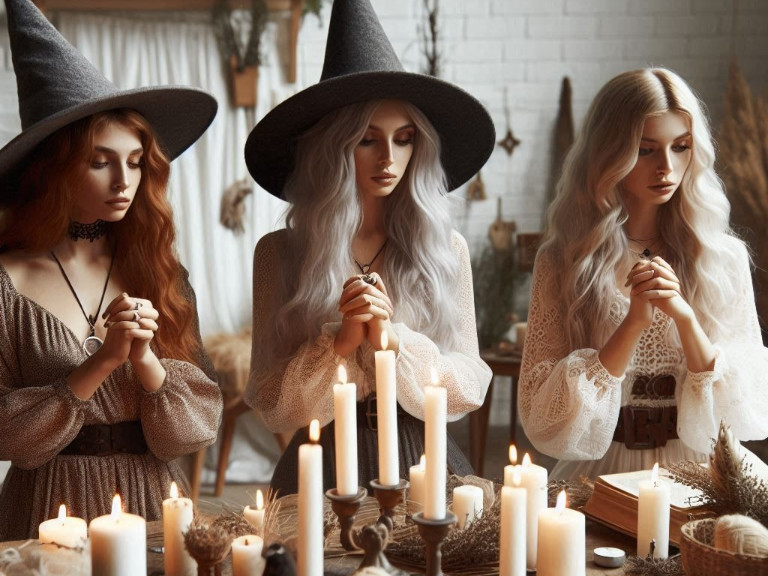
The space where a ritual is held is considered sacred, and it’s important to treat it as such. Whether the ritual takes place in a forest, a living room, or a specially designated temple, this area is consecrated for the ceremony. Entering the space with reverence is key. This means being mindful of your actions, thoughts, and words as soon as you approach the ritual area. Silence or soft conversation is usually preferred, allowing everyone to ground themselves and prepare mentally and spiritually for the work ahead.
It’s also common to see altars or ritual tools set up in the space. These items are often charged with energy and purpose, so it’s important not to touch them unless you’ve been invited to do so by the ritual leader. This respect extends to the environment as well. If you’re outdoors, be mindful of the natural surroundings. Avoid disturbing plants or animals and always leave the area as you found it, if not better. Showing respect for the sacred space honors the spirits, deities, and energies that are being invoked.
2. Be Punctual
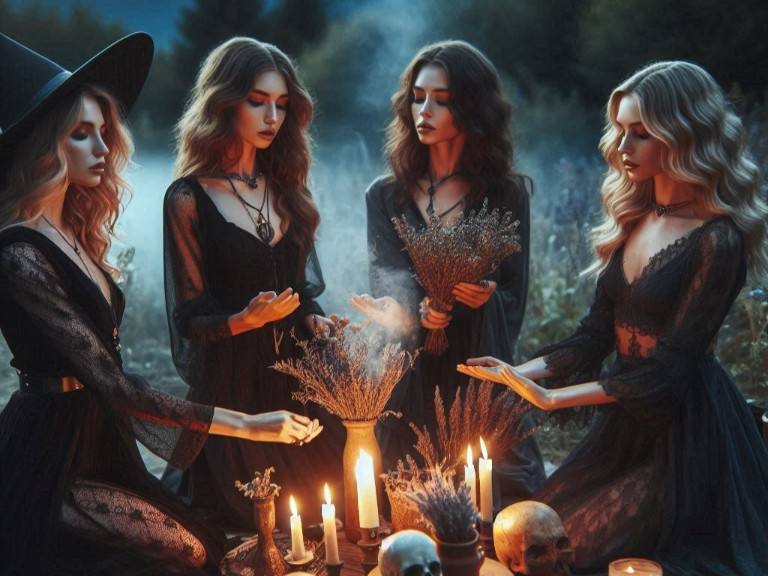
Punctuality is more than just a sign of respect for the hosts; it’s a sign of respect for the ritual itself. Pagan rituals are often timed to align with certain phases of the moon, times of the day, or specific seasonal events, so arriving late can disrupt the flow and energy of the ceremony. Arriving on time allows you to fully participate in any preparatory work, such as grounding or centering exercises, which are often integral to the ritual experience.
If you do find yourself running late, it’s important to enter the space as quietly and unobtrusively as possible. Sometimes, rituals have points where latecomers are allowed to join without causing too much disruption, so it’s a good idea to communicate with the ritual leader in advance if you think you might be late. Respecting the timing of a ritual helps maintain the group’s focus and energy, which is essential for a successful and meaningful ceremony.
3. Dress Appropriately
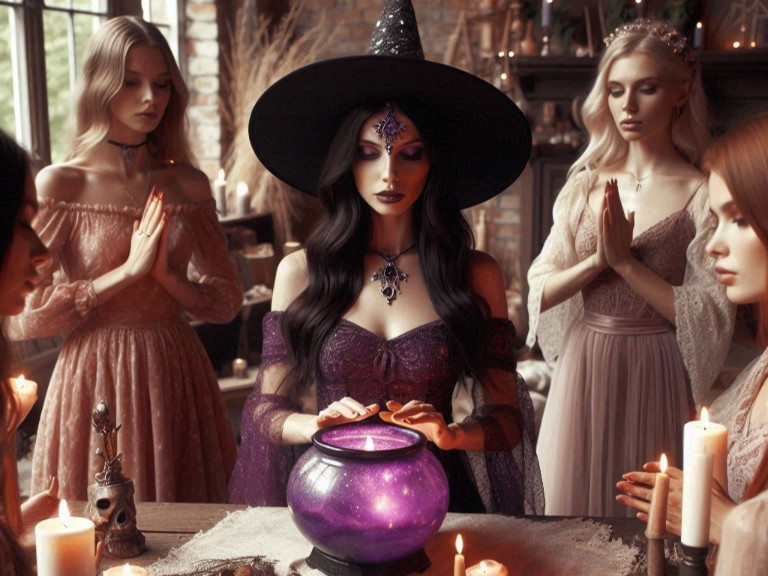
What you wear to a Pagan ritual can vary widely depending on the tradition and the nature of the ceremony. However, the key is to dress in a way that is respectful to the event. In many cases, participants wear ritual robes or specific colors that align with the purpose of the ritual. For example, wearing green might be appropriate for a Beltane ritual, which celebrates fertility and growth, while black or dark blue might be worn during a Samhain ritual, which honors the dead and the thinning of the veil between worlds.
If you’re unsure of what to wear, it’s always a good idea to ask the ritual leader beforehand. They can provide guidance on whether casual clothes are acceptable or if a more formal dress is expected. Regardless of what you wear, make sure it’s something that allows you to move freely and comfortably, as some rituals involve dancing, walking, or sitting on the ground. Dressing appropriately helps you feel more connected to the ritual and shows respect for the other participants.
4. Participate Mindfully

Active participation is a cornerstone of Pagan rituals, but it’s important to do so mindfully. This means being fully present in the moment, listening carefully to the ritual leader, and engaging in the activities with intention. Whether you’re chanting, meditating, or sharing in a communal meal, your focus should be on the ritual and the energies being raised. Distracting behaviors, such as checking your phone or talking out of turn, can disrupt the flow of energy and diminish the experience for everyone involved.
If you’re new to Pagan rituals, it’s okay to take a more observant role at first. Many rituals allow for a period of observation before participation, so you can get a feel for the flow and expectations. If you’re unsure of what to do at any point, simply follow the lead of others or ask quietly if you’re comfortable doing so. Mindful participation enhances the collective energy and deepens the spiritual connection of the group.
5. Honor the Deities and Spirits

Pagan rituals often involve invoking deities, spirits, or ancestors, and it’s important to honor them with the respect they deserve. This can be done through offerings, prayers, or simply by acknowledging their presence and power during the ritual. The way in which you honor these entities will depend on the specific tradition you’re following. Some rituals may call for offerings of food, drink, or flowers, while others may involve lighting candles or incense.
It’s important to approach these acts with sincerity and an open heart. Remember, these rituals are not just about asking for favors or blessings; they are about forming a relationship with the divine. Whether you are a devotee of a particular deity or simply a guest at the ritual, showing reverence is essential. This respect extends beyond the ritual itself; it is something to carry with you as you leave the ceremony and go about your daily life.
6 Be Discreet

Discretion is a key aspect of Pagan ritual etiquette, as many Pagan practices are deeply personal and private. Whether the ritual is part of a solitary practice or a group gathering, it’s important to maintain a level of discretion about the details of what transpires. This includes not only the specifics of the ritual itself but also the identities of those involved. Many Pagans choose to keep their spiritual practices private due to the potential for misunderstanding or judgment from others.
If you are invited to participate in a ritual, it’s a sign of trust and respect. In turn, you should honor that trust by being discreet. Avoid discussing the ritual with those who were not present, unless you have been given explicit permission to do so. This discretion helps maintain the sacredness of the ritual and protects the privacy of the participants. It’s also a way to respect the traditions and beliefs of the group, which may have specific rules about confidentiality.
7. Keep Your Hands Off the Ritual Tools
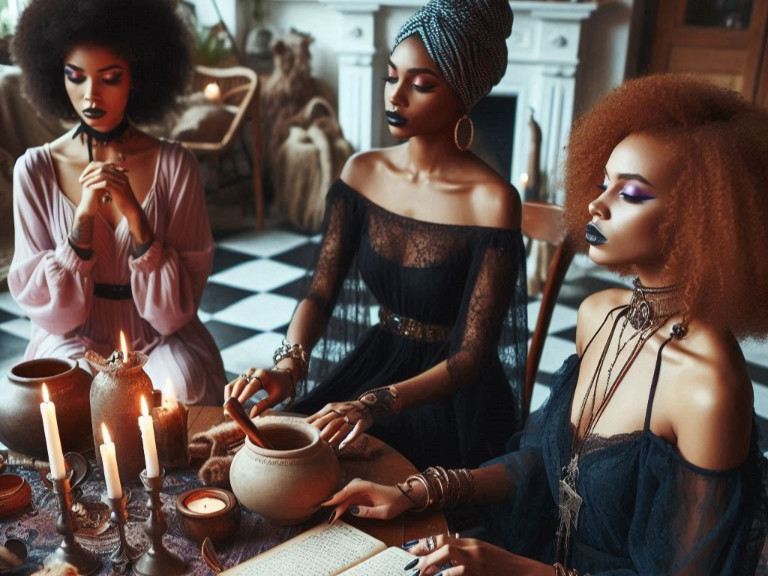
Ritual tools hold significant power and meaning in Pagan practices, and it’s important to respect them by not handling them without permission. These tools, which can include items like athames, wands, chalices, and pentacles, are often consecrated and imbued with energy by their owners. Touching them without consent can disrupt their energy and may be considered a serious breach of etiquette.
If you’re participating in a ritual, you may see various tools laid out on the altar or being used by the ritual leader. While it’s natural to be curious, it’s essential to resist the urge to pick them up or examine them closely unless you are invited to do so. If you are given permission to handle a tool, do so with care and reverence, acknowledging the energy and intention it carries. This respect for ritual tools not only honors the person who owns them but also the spiritual forces they represent.
8. Watch Your Energy and Negative Thoughts

The energy you bring into a Pagan ritual is just as important as the words you speak or the actions you take. Pagan rituals often involve the raising and directing of energy, so it’s crucial to be mindful of your own energy and thoughts during the ceremony. Negative emotions, such as anger, fear, or resentment, can disrupt the flow of the ritual and affect the overall experience for everyone involved.
Before entering the ritual space, take a moment to ground yourself and release any negative thoughts or feelings. If you find yourself struggling with strong emotions during the ritual, try to focus on your breath, and let the energy of the circle support you in finding balance. Being mindful of your energy helps create a harmonious and positive environment, allowing the ritual to unfold smoothly and effectively. Remember, your thoughts and emotions contribute to the collective energy, so approach the ritual with a clear and open heart.
9. Respect Personal Boundaries

In Pagan rituals, personal space and boundaries are highly valued. Many rituals involve close proximity or physical contact, such as holding hands or forming circles, but it’s important to be mindful of others’ comfort levels. Always ask for consent before touching someone, whether it’s a simple gesture like holding hands or a more intimate act like a hug. If you’re unsure, it’s perfectly fine to ask or to politely decline if you don’t feel comfortable. Respecting personal boundaries ensures that everyone feels safe and respected, which is vital for the collective energy and harmony of the ritual.
10. Honor the Ritual Leader
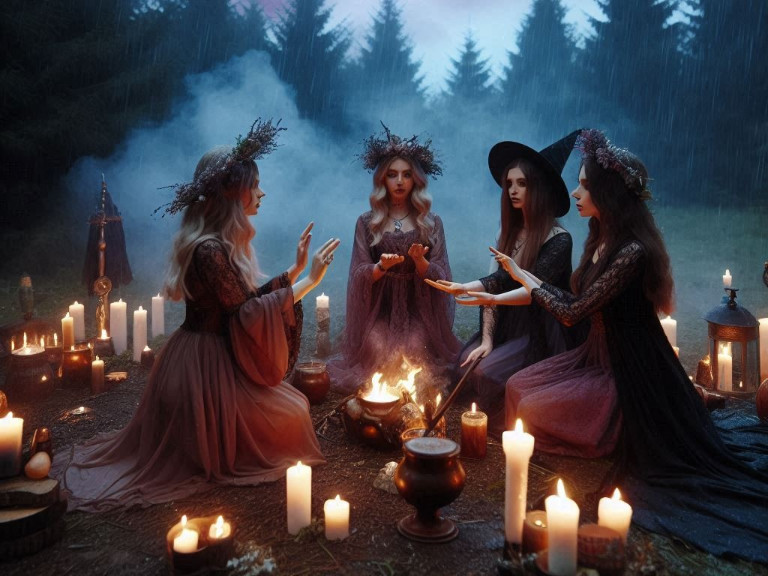
In many Pagan traditions, the ritual leader, often referred to as a priest, priestess, or facilitator, plays a crucial role in guiding the ceremony and ensuring that the ritual’s intentions are fulfilled. It’s important to honor their role and expertise by following their instructions and respecting their decisions during the ritual. This not only helps maintain the structure and flow of the ceremony but also shows appreciation for the time and energy they’ve invested in preparing and leading the ritual.
If the ritual leader asks for silence, participation, or a specific action, it’s important to comply with their requests as best as you can. If you’re unsure about something, it’s okay to ask quietly, but try to do so in a way that doesn’t disrupt the ritual. The leader’s role is to hold the space and guide the participants through the ritual process, so your cooperation and respect are essential to the ceremony’s success.
Additionally, it’s important to recognize that the ritual leader is often serving as a conduit for spiritual energies, and this can be an intense responsibility. Offering them support and gratitude, both during and after the ritual, is a meaningful way to acknowledge their contribution. Honoring the ritual leader helps create a harmonious and respectful environment, allowing the ritual to unfold in its fullest potential.
Final Musings
Practicing proper ritual etiquette is more than just following a set of rules; it’s about fostering a deep connection with the energies and beings that guide Pagan practices. By approaching each ritual with respect, mindfulness, and a sincere heart, you contribute to a sacred space where everyone can experience the divine in their own way. These etiquettes help to ensure that rituals are meaningful, harmonious, and respectful to all participants and the spiritual forces involved.
Whether you’re a newcomer to Paganism or have been practicing for years, remembering these simple guidelines can enhance your experience and deepen your spiritual journey. By honoring the space, the time, and the divine, you help create rituals that are powerful, transformative, and filled with positive energy.




